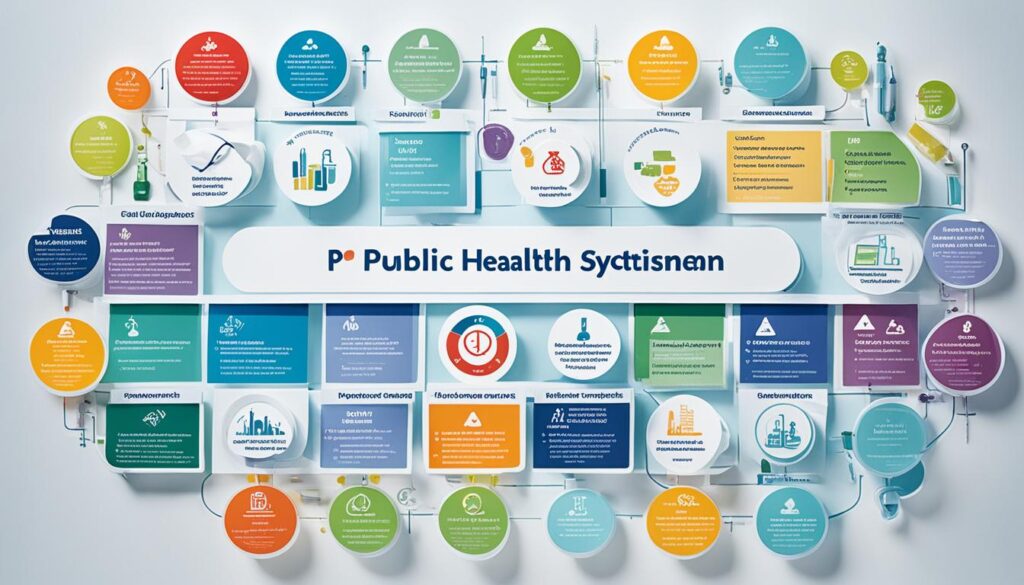- Is Health Care A Good Career Path :The field of health care is a dynamic and rapidly evolving industry that plays a crucial role in society. With the recent spotlight on health care workers during the COVID-19 pandemic, many individuals are considering whether a career in health care is the right path for them. In this article, we will explore the pros and cons of a career in health care, the job opportunities available, and the potential for growth in the industry.
Key Takeaways:
- Health care careers offer longevity and job security.
- The industry provides opportunities to make a difference in people’s lives.
- Health care professionals are in high demand and have various career advancement options.
- Considerations for a health care career include long hours, high stress levels, and potential health risks.
- Careful research and self-assessment are important before pursuing a career in health care.
The Benefits of a Career in Health Care
Health care careers offer numerous benefits, making them an attractive choice for individuals seeking a rewarding and impactful profession. Whether you’re interested in patient care, research, or administration, the field of health care provides diverse opportunities to make a difference in people’s lives.
One of the most significant advantages of a career in health care is the opportunity to make a positive impact on people’s lives. By providing essential medical care, support, and guidance, health care professionals play a vital role in improving the well-being and overall health of their patients. The sense of fulfillment derived from helping others is unparalleled.
Another benefit of a health care career is the potential for career longevity. Advancements in medical technology and an increasing demand for quality healthcare ensure that skilled professionals will always be needed. This means that health care workers can have a sense of job security knowing that their skills and expertise will continue to be in high demand.
Job security is a crucial consideration when choosing a career path. Health care careers offer stability and job security, even in times of economic uncertainty. The need for health care services is constant, regardless of external factors, making it a reliable field for long-term employment.
While a career in health care presents numerous benefits, it is essential to acknowledge some of the associated challenges. Health care professionals often work long hours, including weekends, holidays, and night shifts, to ensure that patients receive the care they need. The demands of the job can be physically and mentally exhausting, requiring endurance and resilience.
Additionally, health care workers may face high levels of stress due to the demanding nature of the job, the responsibility of making critical decisions, and the emotional toll of caring for patients in challenging situations. It is crucial for individuals considering a career in health care to assess their ability to cope with and manage stress effectively.
In summary, a career in health care offers numerous benefits, including the opportunity to make a positive impact, career longevity, and job security. While there are challenges to consider, the rewards of a health care career far outweigh the drawbacks for those passionate about helping others and making a difference in the world.
Job Outlook and Growth Opportunities in Health Care
The health care industry is experiencing significant growth and offers promising job prospects for individuals seeking employment in the sector. With an expected 13% increase in employment, the job market in health care is expanding rapidly. This growth is driven by several factors, including an aging population, the rising prevalence of chronic diseases, and advancements in medical technology. As a result, there is a high demand for skilled health care professionals across various specialties.
The demand for health care professionals is expected to continue to rise in the coming years, creating a wealth of job opportunities in the industry. Whether you’re interested in becoming a nurse, physician, therapist, or other health care professional, there are numerous career paths to explore. The high demand ensures that there will be job stability and security in the health care field.
Furthermore, the growth of the health care industry also presents opportunities for career advancement and professional growth. As the field expands, there will be a need for individuals to take on leadership roles, specialize in specific areas, and contribute to the development and implementation of innovative health care practices. This allows professionals to advance their careers and take on new challenges and responsibilities.
Overall, the health care job market is flourishing, with a high demand for skilled professionals and ample opportunities for career growth and advancement. If you’re considering a career in health care, now is a great time to enter the industry and make a positive impact on the lives of others.

Most In-Demand Health Care Jobs
The healthcare industry offers a wide range of career options and abundant growth opportunities for healthcare professionals. Whether you are just starting your healthcare career or looking to make a career change, there are several in-demand medical roles to consider. These careers span various specializations and require different levels of education and expertise.
Healthcare Profession Education Requirements Salary Range Job Growth Respiratory Therapists Associate’s degree $59,710 – $87,780 per year 19% (Much faster than average) Registered Nurses Bachelor’s degree $63,000 – $115,800 per year 12% (Much faster than average) Dental Hygienists Associate’s degree $75,500 – $103,340 per year 6% (Faster than average) Nurse Anesthetists Master’s degree $183,580+ 17% (Much faster than average) Physician Assistants Master’s degree $112,260 per year 31% (Much faster than average) Nurse Practitioners Master’s degree $111,680 per year 52% (Much faster than average) Physicians Medical degree $197,700+ 4% (As fast as average) Dentists Doctoral or professional degree $155,600 – $208,000+ 3% (Slower than average) Physical Therapists Doctoral degree $60,390 – $111,680 per year 18% (Much faster than average) These healthcare professions represent just a few of the many career paths available in the healthcare industry. Depending on your interests and career goals, you can pursue a career that aligns with your passion and offers significant job opportunities. Whether you prefer direct patient care, medical research, or specialized clinical work, there is a healthcare career suited to your aspirations.

Tips for Starting a Career in Health Care
Starting a career in health care can be a fulfilling and rewarding journey. However, it requires careful consideration and preparation to ensure success. Whether you’re just starting your professional journey or considering a career change, here are some valuable tips to help you pursue a career in health care and achieve success in the field.
1. Clarify Your Motivations
Before embarking on a career in health care, take the time to reflect on your motivations. Consider why you want to pursue a career in this field and how it aligns with your personal and professional goals. By understanding your motivations, you can stay focused and dedicated throughout your career, even during challenging times.
2. Conduct a Personal SWOT Analysis
To succeed in a health care career, it’s essential to identify your strengths, weaknesses, opportunities, and threats (SWOT). Conduct a personal SWOT analysis to get a comprehensive understanding of your abilities, areas of improvement, potential growth opportunities, and possible challenges you may face. This analysis will help you make informed decisions and develop strategies to overcome obstacles.
3. Develop Strong Communication and Empathy Skills
Strong communication and empathy skills are crucial in the health care field. As a health care professional, you will interact with diverse individuals, including patients, their families, and other members of your team. Effective communication and empathetic listening can enhance patient care, build trust, and foster positive relationships with both patients and colleagues.
4. Consider Different Options Within the Health Care Field
The health care field is vast and offers a wide range of career paths and specialties. Take the time to explore different options within the industry and consider the areas that align with your interests, skills, and career goals. Whether you’re interested in direct patient care, administration, research, or technology, there’s a healthcare career that can suit your passion.
5. Gain Relevant Education and Experience
Education and experience are essential for a successful career in health care. Research the educational requirements for your desired career path, whether it’s pursuing a healthcare degree, certification, or license. Additionally, gaining practical experience through internships, clinical rotations, and volunteering can provide valuable hands-on learning opportunities and help you stand out in a competitive job market.

6. Stay Updated with Industry Changes and Technologies
The health care industry is constantly evolving, with new technologies and advancements shaping the field. Stay current with industry changes, trends, and emerging technologies relevant to your chosen healthcare profession. Continuous learning and professional development will not only enhance your skills but also demonstrate your commitment to providing quality care.
By following these tips, you can set yourself on the path to a successful career in health care. Remember to stay passionate, remain dedicated, and embrace opportunities for growth, as the healthcare field offers endless possibilities for personal and professional fulfillment.
The Advantages of a Health Care Career
A health care career offers many advantages. It can be a financially rewarding career path, with many roles offering competitive salaries and benefits. Health care professionals have the opportunity to make a meaningful difference in people’s lives, contributing to their well-being and overall health. Additionally, the field provides various career options and room for growth, allowing individuals to find their niche and advance professionally.
One of the key advantages of a health care profession is the potential for job satisfaction. Working in health care allows individuals to directly impact the lives of patients and their families, providing care and support during challenging times. This level of contribution often brings immense job satisfaction and a sense of fulfillment.
Another advantage of a health care career is the potential for career growth. The field offers a wide range of career options, from hands-on patient care roles to administrative and managerial positions. Whether one’s passion lies in nursing, medicine, research, or public health, there are numerous pathways to explore and advance within the health care industry.
In addition, working in health care provides a stable and secure career. The demand for health care professionals continues to grow, ensuring job stability and security. The industry’s resilience, even in times of economic downturn, makes it an attractive choice for individuals seeking long-term employment prospects.
Furthermore, a career in health care offers the opportunity for continuous learning and professional development. With advancements in medical technology and research, health care professionals must stay updated on the latest trends and best practices in their respective fields. This ongoing learning not only enhances their knowledge and skills but also opens doors to new career opportunities.

Considerations for a Career in Health Care
Before pursuing a career in health care, there are several important considerations to keep in mind. Whether you’re interested in becoming a health care worker or entering the medical field, understanding the requirements and challenges of the industry is crucial for making an informed decision.
One of the key considerations is the level of education required for different health care jobs. While some positions may only require a high school diploma or equivalent, others may demand advanced degrees such as medical degrees. Researching the educational requirements of your desired career path will help you determine the necessary steps to achieve your goals.
Another vital aspect to consider is the emotional and physical challenges that come with working in the health care industry. Health care jobs often involve long hours, high stress levels, and exposure to difficult and emotionally challenging situations. It’s important to assess your ability to cope with these demands and determine if you possess the necessary resilience to thrive in this field.
Assessing your personal attributes and interests is also crucial when considering a career in health care. It’s important to align your skills and attributes with the demands of the profession to ensure a good fit. For example, if you have strong communication and interpersonal skills, a career in patient care or counseling may be a suitable option. On the other hand, if you have a passion for scientific research and analysis, a career in medical research or laboratory work may be more appealing.
Understanding the various career options available in the health care industry is also essential. The field provides a wide range of career paths, each requiring different levels of education and offering distinct job responsibilities. By exploring different options within the health care field, you can find the career path that best aligns with your interests and goals.
To summarize, before embarking on a career in health care, take into account the educational requirements, emotional and physical challenges, personal attributes, and available career options. By thoroughly considering these factors, you can make an informed decision and pursue a health care career that suits your aspirations and strengths.

The Drawbacks of a Health Care Career
While a career in health care offers numerous benefits, it’s important to consider the drawbacks that come with the job. Health care professionals face high levels of stress, long working hours, and emotional challenges that can take a toll on their well-being. Here are some of the key drawbacks to be aware of:
- High Stress: Health care jobs can be highly stressful, often requiring professionals to make critical decisions under pressure. The responsibility of caring for patients’ lives and well-being can contribute to a high-stress environment.
- Long Hours: Many health care jobs involve long working hours, including overnight shifts, weekends, and holidays. This can lead to fatigue and a work-life imbalance, affecting personal relationships and overall quality of life.
- Emotional Challenges: Health care workers often face emotional challenges due to dealing with patients’ pain, suffering, and loss. This can lead to emotional exhaustion and compassion fatigue.
Furthermore, health care professionals put their own health at risk while caring for others. They may be exposed to infectious diseases and physical hazards, making their own well-being vulnerable.
It’s essential for individuals considering a health care career to carefully evaluate their ability to handle these challenges. While the rewards can be profound, it’s crucial to prioritize self-care and develop effective coping mechanisms to maintain overall well-being in this demanding field.

Also Read : 10 Delicious Superfoods That Will Revolutionize Your Diet And Health
Conclusion
In conclusion, a career in health care offers individuals the opportunity to pursue a rewarding and fulfilling path. With the potential to make a positive impact on people’s lives, health care professionals play a vital role in society. The industry presents promising job prospects, growth opportunities, and job security, making it an attractive choice for those considering a career in health care.
However, it is essential to thoroughly consider the pros and cons before embarking on a career in this field. While the health care industry offers numerous benefits, such as the chance to contribute to the well-being of others and find career longevity, it also comes with challenges. These challenges include long hours, high stress levels, and potential health risks.
Before pursuing a career in health care, individuals should carefully evaluate their own interests, attributes, and personal circumstances. It is important to understand the specific requirements and demands of the field, as well as the emotional and physical challenges that may arise. By doing so, individuals can make a well-informed decision about whether a career in health care is the right path for them.
FAQs
Q: What are the pros and cons of pursuing a career in health care?
A: Pros of a health care career include job stability, rewarding work, and various job options within the field. Cons may include long hours, high stress, and emotional strain.
Q: What are the different types of careers one can pursue in health care?
A: Careers in health care range from clinical roles such as doctors and nurses to administrative positions like health care management. Other options include medical assisting, physical therapy, and home health aides.
Q: Is health care a good career path in terms of job outlook and salary?
A: The demand for health care services is expected to continue growing in the next decade, according to the Bureau of Labor Statistics. Many health care professions offer salaries higher than the median for all occupations.
Q: What are some key reasons why pursuing a career in health care may be a good decision?
A: A career in health care offers the opportunity to make a positive impact on people’s lives, job security due to the increasing demand for health care workers, and the chance to work in a dynamic and rewarding environment.
Q: What are the different career paths within the health care profession?
A: Health care offers diverse career paths, including primary care, medical and health services, health care administration, and various specialized medical fields like nursing, physical therapy, and occupational therapy.
Q: What are the career options in health care that are expected to have a significant demand in the coming years?
A: The health care sector is anticipated to see increasing demand for positions such as medical assistants, home health aides, and healthcare administrators, among others.
Q: Are there specific states or regions known for offering good career opportunities in health care?
A: Some states are recognized for their robust health care industries and ample career opportunities, making them favorable choices for individuals seeking careers in the health care field. Positions in health care are often plentiful in these areas.
Q: Is a career in health care a good option for those interested in contributing to the well-being of others?
A: Yes, a career in health care allows individuals to provide essential care to patients, contribute to their recovery, and overall health and well-being.
Q: What does the job outlook for health care careers look like in 2023 and beyond?
A: The job outlook for careers in health care remains promising, with the increasing demand for medical services and a variety of positions within the industry. According to the BLS, the outlook for health care is positive and continues to be a strong career path.
Q: What are some of the specific job opportunities available within the world of health care?
A: Job opportunities in health care range from medical and health services positions to roles in health care settings, including doctors, nurses, home health aides, and medical administrators among others, all of which contribute to the well-being of diverse patient populations.
Source Links
12 mins read
Is Health Care A Good Career Path? Pros Explained

Tags:
- assistant
- bureau of labor statistics
- care a good career path
- care services
- career in health care
- career in the health care
- career opportunities
- career option
- career paths
- consider a career in health
- covid-19 pandemic
- demand for health care services
- doctors and nurses
- health care a good career
- health care career
- health care field
- health care industry
- health care job
- health care may
- health care profession
- health care professional
- health care sector
- health care worker
- health nurse
- health services
- high school diploma
- job growth
- job in health care
- job outlook
- job security
- many health care
- many health care workers
- medical assistant
- medical care
- medical degree
- medical field
- next decade
- nurse
- nurse practitioner
- occupation
- patient care
- physical therapy
- practitioner
- pros and cons
- public health
- pursue a career
- registered nurse
- rewarding career
- salary
- working in health care
You might be interested in
Latest from Blog
Wellness combines our physical, mental, and spiritual health. It helps the body, mind, and spirit work
Keeping a strong physical health is key for your overall well-being. It helps lower the chances
Holistic wellness looks at whole health, not just one part. It cares about physical health, feelings,
Weight loss comes from eating better and moving more. Exercising regularly is key to reaching your
Eating a variety of vegetables helps us stay healthy. But, it might surprise you to know






